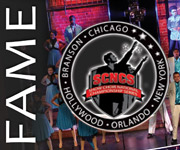
Grant Writing 101: Before You Start
Sitting down to write a grant can be a daunting task. Though there is a chance of being turned down, if you don’t try, you definitely won’t get a positive response.
Grant writing takes a certain amount of skill, and most nonprofits employ people full time to write proposals. Singing groups often don’t have the kind of resources to hire such an individual, so choral directors or someone else in the group often has to bite the bullet.
First steps
Take a look at your organization. Are you ready to apply for a grant? Have you crafted a mission statement that sets you apart from other singing groups? Until you have a good idea of your choir culture and individual needs, it will be difficult to write a compelling grant.
Register as a nonprofit
Is your organization declared as a nonprofit entity? Once you register your group as a nonprofit, you will be eligible for public and private grants, as well as contributions from individuals. If you aren’t a registered nonprofit, you will be required to fill out a lot of paperwork. The Council of Nonprofits website has step-by-step instructions that should be helpful.
Dun and Bradstreet Number
Many granting institutions will require you to have a Dun and Bradstreet number. D&B will assign you an identifying nine-digit number that is a universal standard for tracking more than 100 million businesses worldwide. This is another small hoop to jump through, but once you have it, it will be easier to apply for many different grants.
Determine your need
To write a successful grant, you have to know exactly where the money is going and what benefits it will have. This means you have to identify the need clearly, but it also means that you have to be ready to back up your proposal with additional information. According to Choral Director Magazine, you should plan out exactly how the money will be used before writing.
Grant Writing 102: Composing the Letter
Now, it’s time to sit down and begin writing. Grant writing is difficult and you will face rejection, probably more than once or twice, but you definitely won’t get funding unless you do it. Writing a grant may be the only way to get the choir resources you need. Here are some tips to write a successful grant:
Identify and clearly state your need
You can’t just ask for money; you have to tell the institution or individual exactly what you will use it for. Clearly outline the project, initiative, trip, etc. you intend to use the funds to accomplish. Before submitting the grant, make sure the budget you’ve come up with makes sense! However, when composing the grant letter, don’t spend too much time addressing the problem. What you really need to do is talk about the solution you’re proposing, according to NonprofitKinect. Make your plan as actionable as possible. Allow whoever is reading your letter to imagine what his or her organization’s resources could help you accomplish.
Keep the writing simple
Using jargon and complicated language won’t win you any favors, according to the National Education Association. You may be well-versed in the language of music. While the organization you’re writing to may be equally knowledgeable, they also may not be. Not only do you not want to turn off any readers, you want to be as straightforward as possible. Rather than relying too heavily on the thesaurus, concentrate on how you will present the grant. Organize the letter so it flows clearly. Find a way to implement a story that will make the reader remember you.
Talk up your singing group
Illustrate the various strengths of your current programs using quantifiable evidence, whether that means citing attendance records or critical praise the group has received. Let the organization know it will be worthwhile to help you out. Find a way to tell a story. Remember that many other choirs may be applying for the same grants. What makes you stand out? Make sure you define how your group is unique and why your group should have access to the resources afforded by the grant.
Proofread and edit
Your first attempt may not be as great as you think, so expect to put a lot of time into revision. Make sure multiple people review the proposal and give their feedback. Have someone read it who has nothing to do with your group and see what they make of it—the more eyes, the better.











